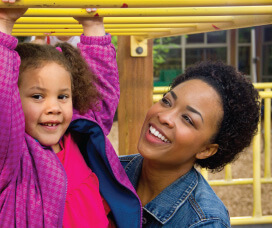Divorced Co-Parents’ Dilemma: Balancing Privacy vs. Sharing

By Rosalind Sedacca, CDC
My co-parent tells our kids not to tell me about what goes on at home when they visit. Can’t I ask questions?
You’re not alone in being frustrated by finding balance in the privacy versus sharing equation. And there is no simple answer. After divorce most parents want to keep their private lives private and don’t want the children sharing too many details about their visit time. Asking your children to “spy” on their other parent puts the kids in an awkward situation. They feel guilty, pressured and confused, especially if Mom or Dad tells them not to share specific information.
This delicate subject needs to be addressed between both parents and agreed upon in advance. Discuss sensible boundaries, taking into account the age of your child. Children should be able to talk to both parents about activities, meals or other innocent details regarding their time with their other parent. That’s how they relate. Asking a child not to say anything is unfair to them as they usually want to talk about things they did. But you shouldn’t probe beyond the superficial with them. If you want to know exactly what Dad bought them for dinner, who the friend was that stopped by and what time they went to bed, you should have that conversation with Dad.
For those who aren’t communicating easily via phone, try one of the online scheduling services designed for just this purpose. Use it to avoid conflict related to overlooked messages, event details, school notes, important phone numbers, etc. Create some agreements about information or conversation boundaries in advance. Perhaps Mom and Dad need to share menus or venues they visited that week on the scheduling calendar or via email. Perhaps that information is not to be shared. Get help from a mediator or therapist if you need an intermediary in making agreements. Just keep the kids out of the conflict!
What if my co-parent doesn’t let me call my kids while at the other home?
Children suffer when one parent doesn’t allow the kids to communicate with their other parent – whether it’s over night or for an extensive stay. Divorce forces children to be separated from one parent most times. It was not their choice. Insisting they have no contact with the other parent punishes the children unnecessarily. Connection with parents creates security and a sense of comfort. Talking for just a few minutes on the phone, via text or tablet provides that comfort. Denying your child time to maintain connection with either parent is hurtful and will be destructive long-term.
Be sure not to exploit that contact time and overstay your welcome. A 5 to 10 minute conversation should cover your bases without being too overindulgent. Remember to welcome those calls when the kids are at your home.
If your co-parent doesn’t want to cooperate in this regard, try to bring a therapist, divorce coach or other expert into the picture to mediate a resolution. You’ll find numerous articles on my www.ChildCenteredDivorce.comwebsite as well as several other divorce and parenting websites and blogs encouraging both parents to keep communication with the childrenas easy and stress-free as possible. Sometimes, simply sending an article or two to your co-parent will open their minds to the importance of giving the children ongoing contact with their other parent. If that doesn’t work, taking legal action may be necessary, but only as a last resort.
Always remind your children that you love and miss them when they are not with you. However, never “guilt” them into feeling emotional turmoil about leaving you to stay with their other parent. Encourage positive visits and remind them you look forward to seeing them again next time it’s your turn.
*** *** ***
Rosalind Sedacca, CDC is the founder of the Child-Centered Divorce Network, a Divorce & Co-Parenting Coach and author of numerous books and e-courses on divorcing with children and co-parenting successfully. For instant download of her FREE EBOOK onDoing Co-Parenting Right: Success Strategies For Avoiding Painful Mistakes! go to: childcentereddivorce.com/book
Please share this article on social media!
